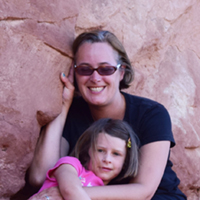Kirkland and Ellis estate attorney David Handler knows that high-net-worth parents sometimes worry that their estate could be a “disabler” to the next generation.
“They’ll have all this money, they’ll do nothing,” the parents fret.
Handler reminds clients that parents pass on values as well as assets.
“Convey those values to your kids while you’re here — and live them,” Handler advises. Pair that with smart estate planning, and an inheritance can do what you wanted for your kids: Enable them. With inherited assets to fall back on, they’ll be free to pursue their dreams and happiness, with a safety net.
At Make It Better Media Group’s recent Family Law and Finance virtual event, Handler shared one example of how estate planning can impact happiness across generations:
A group of five siblings inherited a family business together. Two siblings actively run the company, and want to reinvest to grow the business. The others would prefer to sell and receive their inheritance in assets they could diversify or spend.
The negotiations that have dragged on for years are surely not what their father dreamed of when he built the company.
“That tension was never intended to be there, but it’s just naturally there because they’re sharing an asset,” Handler said.
At the virtual event, Handler shared two key guidelines for estate planning:
1. Divide it up.
In the above scenario, a shared asset created discord among the kids. This is why Handler recommends that before business owners look at how to pass on their business, they seriously consider whether passing it on to all their children is a good idea.
For one thing, one or more of the children might not be suited for or interested in that particular business. Maybe mom was a chef who started a great catering service, but her son doesn’t cook and wants to be a dentist.
“If you have any interest in your kids’ happiness, you don’t want to put them in a job that they hate,” Handler said.
One alternative to passing down the family business would be to sell it, so that the proceeds can be diversified and placed in trust for the kids. Or, if one of the children truly wants to run the business, you could leave full ownership to that individual, and set aside other assets for the siblings.
“You will get the business, but I’ll take care of my other kids with the homes and the cash and life insurance,” Handler said by way of example.
Beyond family businesses, trusts and other assets should also be left to individuals, not groups, Handler advised.
“Sharing toys is one thing when you’re eight. Sharing a bank account when you’re 40 is not good.”
2. Leave guidance, not rules.
When creating a trust for the next generation, Handler encourages clients to include a statement of values, to guide trustees in how the funds might be used.
But he stresses that these should be guidelines, not requirements.
A statement of values might be: “We encourage education and following the law.”
It’s not: “You can only access this trust if you marry someone of our faith.”
The latter would be using money to try to control your kids, a mistake Handler warns against.
“If you couldn’t raise them and teach them and educate them in the 25 years you had them at home, the trust document is not going to fix it in the latter 50 years.”
Parents who try to use their estate as a carrot and stick may face consequences they never intended, Handler warned. To wit: The kids might decide they’d rather have their freedom than their parents’ money, and cut ties entirely.
“Money does not bring families together. Families bring families together,” Handler said.
Watch the full conversation below:
More from Marin:
- Stewards of a Historical Gem: How the Sweetwater Music Hall Was Re-invented as a Nonprofit to Preserve a Legendary Venue
- The PNOC Foundation’s 2021 Gratitude Gala Raises Funds to Help Pediatric Brain Cancer Patients
- Youth Nonprofit Marin Charitable Gets Funky at Its Fall Fundraiser

Carrie Kirby spends a lot of time asking people about something they think about but rarely talk about: money. Her work on personal finance, business and technology has appeared in San Francisco Magazine, Consumers Digest, Wise Bread and more publications. Carrie’s most recent work about her other love, travel, appears in The Best Women’s Travel Writing: Volume 10. She lives on an island (Alameda) with her husband and three kids, and blogs about getting them all where they need to go without owning a car at carfreemom.com.


